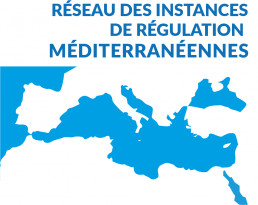The 14th Plenary Assembly of the Mediterranean Network of Regulatory Authorities was held in Lisbon on 22 and 23 November 2012, at the invitation of the Enlitade Reguladora para a Comunicação Social (ERC) from Portugal holding the vice-presidency of the Network, and under the presidency of Mr Anthony J. Tabone, president of the Broadcasting Authority of Malta (BAM), and President of the Network.
Seventeen regulatory authorities were represented including the three authorities member-observers. The European Audiovisual Observatory, the regulatory authority from Gibraltar took part in the debates as observers.
At the end of the meeting, the Agency for Electronic Media of Croatia (AEM), the Agency for Electronic Media of Montenegro (AEM), the Independent Media Commission (IMC) of Kosovo joined the Network under the status of member and the Gibraltar Regulatory Authority (GRA) as member-observer.
MNRA is now composed of twenty-three member authorities and one member observer authority representing twenty states of the Mediterranean Basin.
The president Anthony J. Tabone delivered his opening speech reminding the participants of the progress of the network on the issue of audiovisual content regulation. He underlined the significance of the initiatives taken by the member authorities in the field of cooperation, particularly with the North African countries such as Tunisia involved in the process of reforming the media sector. He specified that guaranteeing freedom of communication, defence of pluralism, preservation of the public interest are core missions of the Mediterranean regulatory authorities.
The first day ran five thematic sessions on the content regulation issues at stake. The question of gender and stereotypes was addressed jointly by the presidents of the Moroccan HACA and the Andalusian CAA on the basis of the responses of the member authorities to the relating questionnaire. Then the Maltese BAM gave an account of the representation of disability on television and the accessibility of the programs, followed by the presentations of the HACA and the Mauritanian HAPA about tolerance and diversity in the broadcasts. The Lebanese CNA made a specific focus on the necessity for regulatory authorities to abide by the law and the regulations when following up programs contents.
Upon a proposition of the Moroccan and the Andalusian authorities, the member authorities adopted a common declaration on the fight against gender stereotyping in the audiovisual media based on the declaration on audiovisual content regulation adopted in Reggio in 2008.
The declaration sets out forward plans for the work of the network under the Portuguese presidency for 2012-2013 and implements a working group on this question within the network.
On the initiative of the President of the CSA, the participants debated on the unity or duality of the audiovisual and electronic communications regulatory authorities. Mr Boyon drew the assembled regulators’ attention to the fact that the evolution of the technologies has helped to increase the receiving terminals and to diversify the consumers’ usages thus shedding light on new practices. These transformations create major technical, legal and economic problems as concerns coexisting regulated and no regulated contents on the same screen. They plead in favour of the audiovisual regulation to adjust to the digital evolution. In turn, the president of the Cypriot CRTA emphasized that the problematics at stake set new challenges for the Mediterranean regulators. He urged the participants to launch a thorough reflection on the issue.
On the second day, the ERC highlighted the representation of social movements in the media, on the basis of the monitoring and the study of the Portuguese media. The Maltese Presidency presented the assessment of a study conducted amongst member authorities about the legal and regulatory framework in the Mediterranean. The report will be published on the MNRA website.
The representative of the Turkish RTÜK informed the participants about the creation of the Islamic Countries Broadcasting Regulatory Authorities Forum.
Mr Wolfgang Closs, Chief Executive of the European Audiovisual Observatory, intervened on the future adhesion of Morocco to the EAO. He then presented the state of work of the Mediterranean Audiovisual Observatory launched in October 2011 and called the member authorities of the network to strengthen their cooperation with both organizations.
The end of the discussions focused on the Life of the Network. The Haute Autorité de la communication audiovisuelle of Morocco presented its current reflections on the functioning of the Mediterranean Network. The principle of a roadmap for the Presidency was acted by all members authorities present at the meeting.
During the closing ceremony, the Presidency of the Network was entrusted to Mr Carlos Magno president of the Portuguese Entidade par a Comunicação Social (ERC) and the Vicepresidency to Mr Andréas Petridès, president of the Cyprus Radio Television Authority (CRTA).
The next annual meeting of the Network will take place in 2013 in Cyprus on the invitation of the CRTA.
